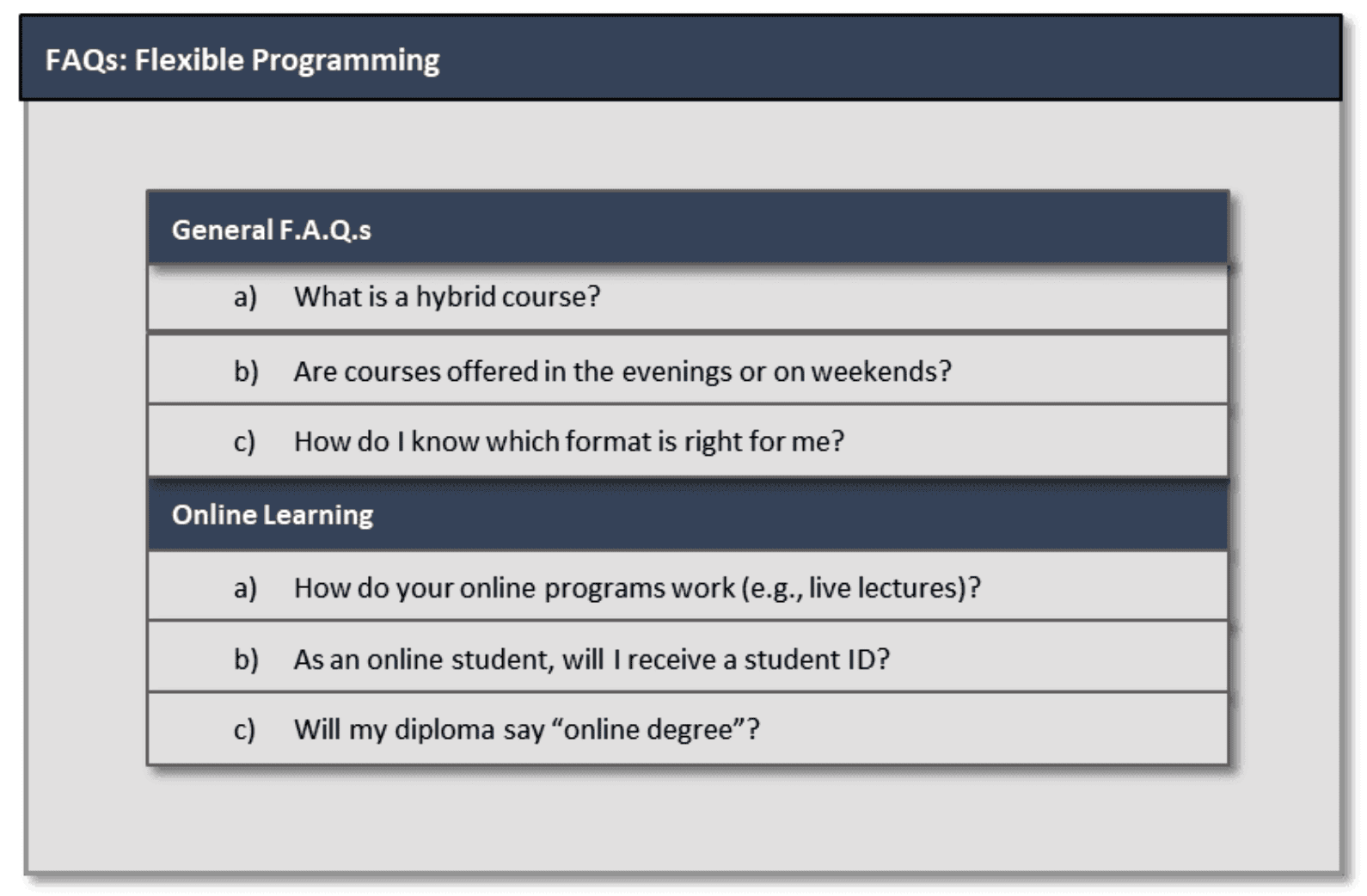2 ways to address adult learners’ concerns about program flexibility
I work full-time. Many times, I work overtime. I’m married. I have a 13-year-old son. Many times, I have no time for myself. So how am I going to have time for school?
Survey Respondent
New York
This response is just one of many we receive in our annual survey of prospective students that speaks to the competing priorities and responsibilities adult learners weigh as they consider going back to school. Even before the pandemic, schools were adapting to students’ needs for flexibility by increasingly offering more flexible options, including online or hybrid options, asynchronous course delivery, ability to pause the program, the opportunity to bring children to class, and more.
Flexible programming also supports diversity, equity, and inclusion initiatives. Increased program flexibility enables students to better manage responsibilities outside of the classroom while still completing a degree program.
Watch: Strategies to Support Adult Learners’ Success
So how do you show prospective graduate, online, professional, and adult degree completion students that your program is flexible and committed to their success? Here are two strategies you can use.
1. Create an FAQ page to answer prospective student questions around flexible programming and its benefits
In our most recent survey of prospective graduate, adult, and online students, 71% shared they consulted programs’ webpages when searching for information about going back to school. They also named online resources as some of the most important when considering program options. To facilitate students’ online exploration, consider developing an FAQ page that directly addresses many of the concerns and misconceptions students share about online, hybrid, or part-time learning.
Bust These 3 Myths About Online Learning at Your Campus
For example, the University of Maryland Global Campus offers a FAQ section specifically on flexible scheduling. Questions include, “Can UMGC education fit my lifestyle?” “What is a hybrid course?” and “I am used to a classroom lecture setting. How will this compare to UMGC’s online classes?” Answering these questions in one place will also further enable adult learners to shop for programs independently.

For more resources on how to create an FAQ page, refer to EAB’s Web Optimization Toolkit.
-
71%
of surveyed students shared they consulted programs’ webpages when searching for information about going back to school
2. Provide students with the opportunity to sample an online course
If possible, allow prospects to experience an online class without having to pay or go through the application and enrollment process. While some institutions offer videos or even virtual tours to replicate the experience of submitting an assignment in Blackboard or joining a simulated discussion group, other schools offer more intensive test-drive options.
For example, Georgetown University has an “Online Experience” which gives prospects the opportunity to explore modules in an online project management class before applying. The ability to explore an online course prior to enrollment can assuage adult learners’ concerns about the technology required to complete coursework or opportunities to interact with peers and faculty. Test-drive courses can be resource-intensive to start. But enrollment leaders tell our Adult Learner Recruitment team they are invaluable in addressing students’ concerns about online learning in a tangible way.
Student interest in flexible programming options is only growing, as is evident from growing enrollments in online graduate programs (especially compared to declining enrollment in face-to-face programs). As students continue to prioritize flexible programming, will become increasingly important that graduate and adult education programs showcase the ways they can meet students’ needs.
More Blogs

The big bets that actually drive online enrollment growth

How to use state demand data to launch or revitalize programs
